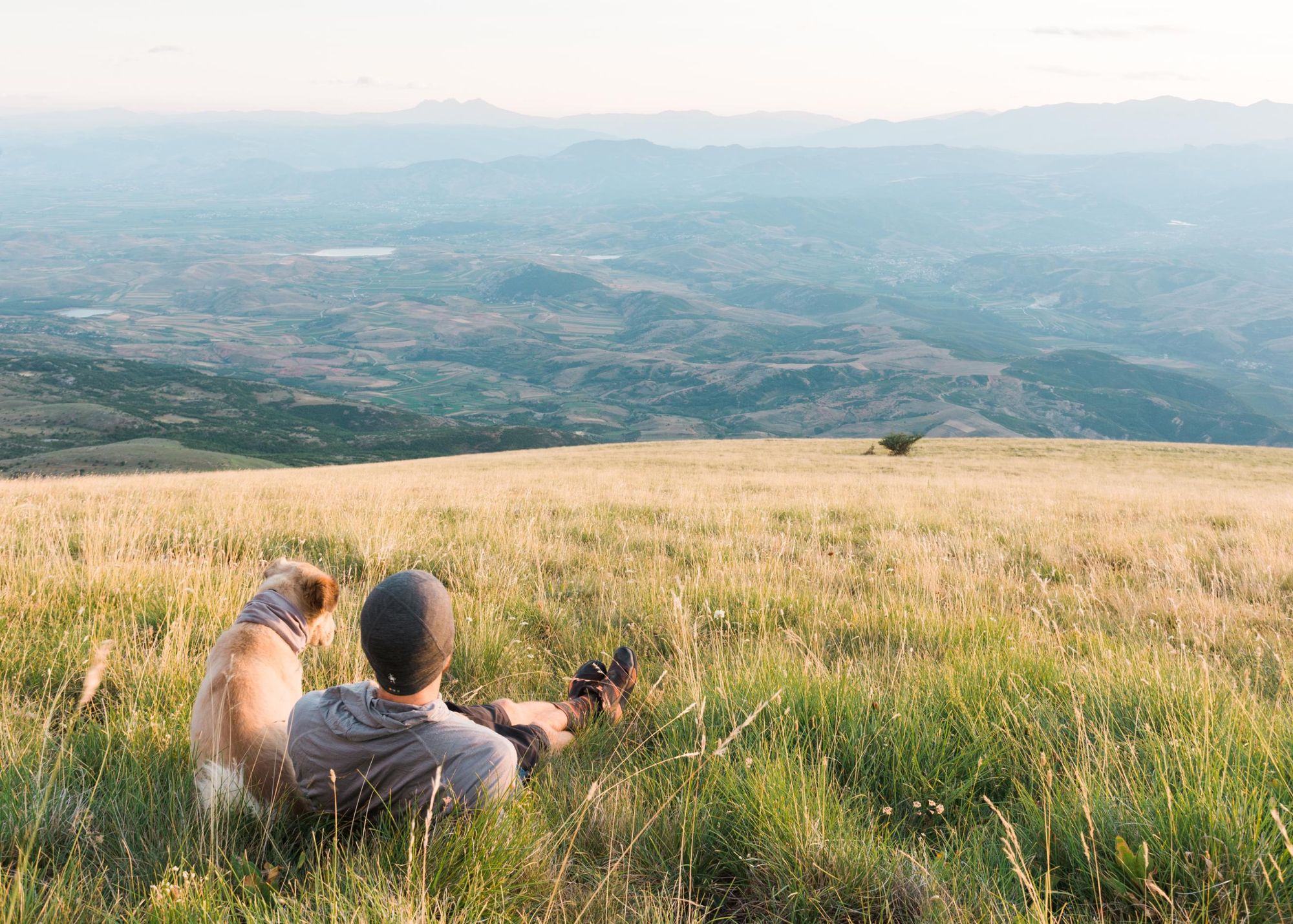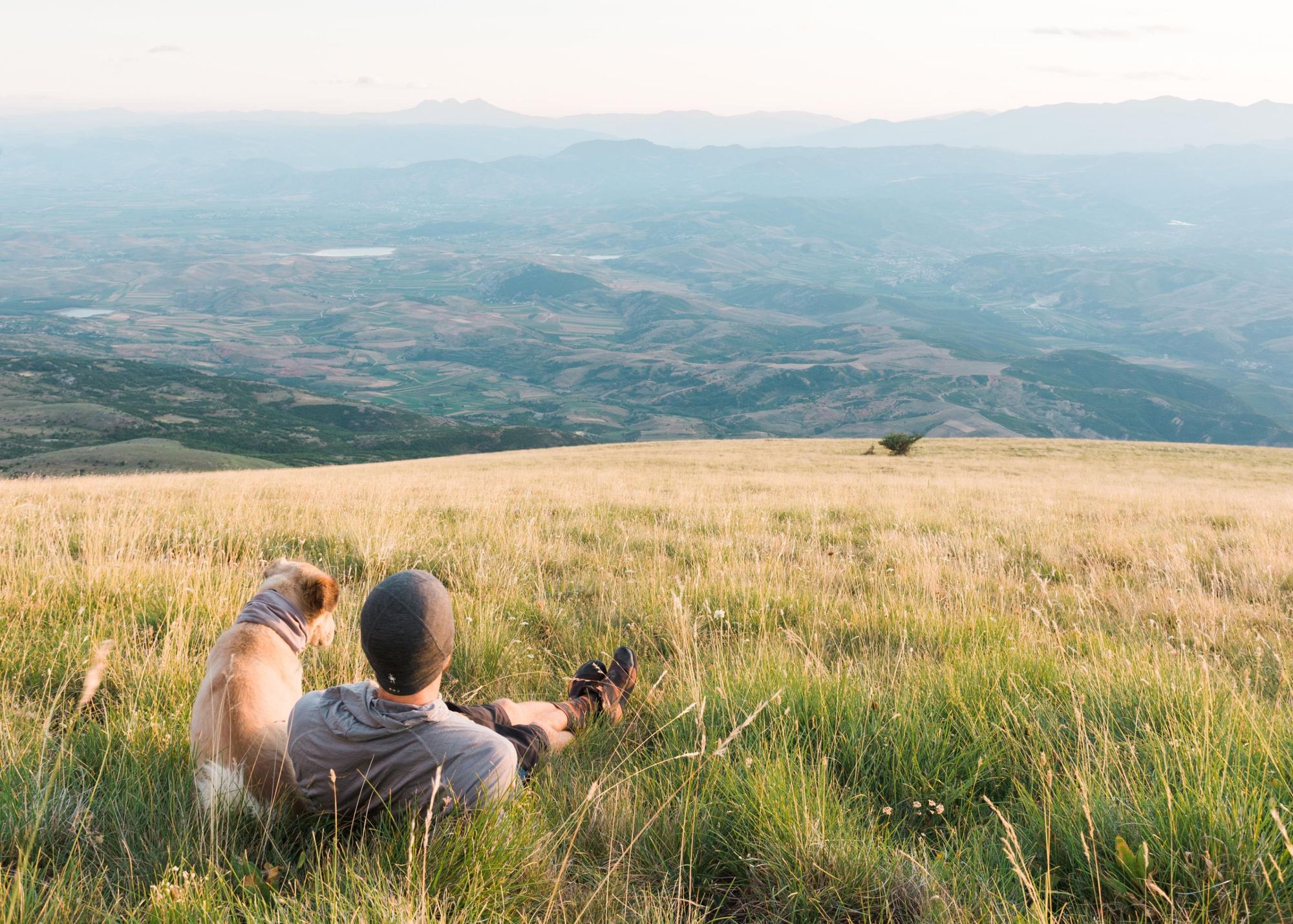
We tend to think of adventure as something physical - adrenaline filled activities like rock climbing or white water rafting. But it transforms you mentally as well as physically. This is something Tom Turchich knows from experience, having spent seven years of his life walking around the world.
“Walking is very reflective,” he says. “The first four months or so resolved the largest kind of knots in who I was - I was able to untangle those - but it took a year and a half or so to really get down to it, to strip away everything. As I walked I got very good at being with myself, and knowing my place in the world.”
As I walked I got very good at being with myself, and knowing my place in the world
One way that adventure travel is transformative is in helping you cultivate an “abundance mindset”. This was a term first coined by Stephen Covey in his bestselling book, The 7 Habits of Highly Effective People. “The Abundance Mentality (...) flows out of a deep inner sense of personal worth or security. It is the paradigm that there is plenty out there and enough to spare for everybody,” he wrote.
In short, abundance is about truly being secure in yourself and your own journey - in having the confidence to follow your own path, rather than making comparisons to other people.
This feature takes a deep dive into how adventure travel helps cultivate an abundance mindset, whilst diminishing its evil twin, scarcity mindset - the idea that there’s not enough to go round. Tom provides insights gleaned from his walk around the world, and we also speak to Charlotte Russell, clinical psychologist and founder of The Travel Psychologist - a blog about the psychological benefits of travel.
Scarcity vs Abundance Mindset
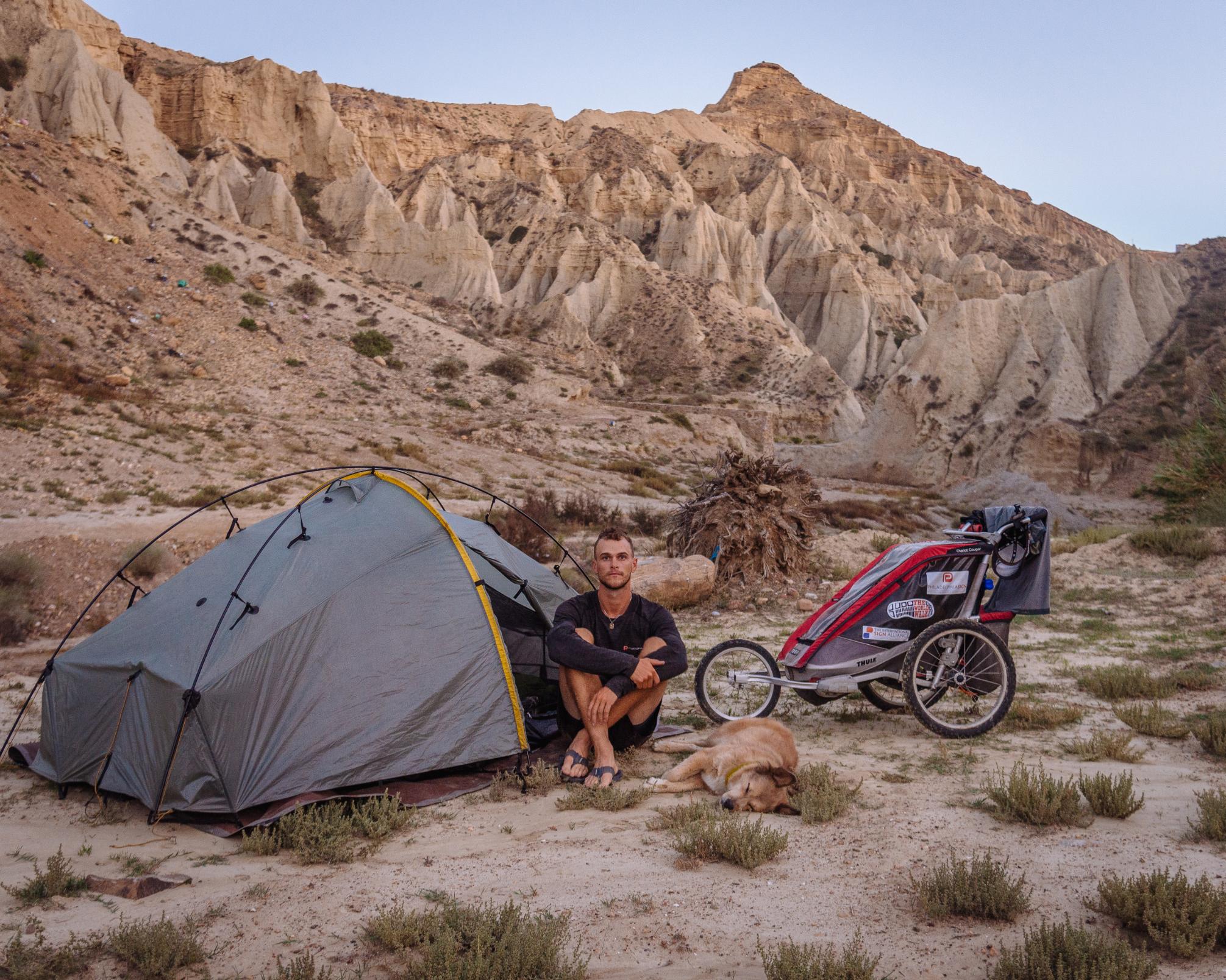
The 7 Habits of Highly Effective People is a business self-help book - as a result, the terms ‘abundance’ and ‘scarcity’ are often used in reference to the workplace. We asked Charlotte to contextualise them more broadly, in order to understand how they fit into everyday life.
“Scarcity mindset is common. There's a number of factors that might trigger it,” she says. “It's this idea that resources are limited and that we have to be in competition with other people in order to get what we need. As soon as I think about it, I begin to feel fear and tension within myself. That’s because the scarcity mindset is linked to our primitive fear response, something which evolved in times of genuine lack, when we might not have had food or shelter and it was a life or death situation.
“Scarcity mindset is linked to our threat system, but it’s no longer just a lack of food and water which can set it off. It’s the messages we receive from society: ‘you need this to feel happy. You need to achieve this by the time you’re 30; you need to move up the ladder as quickly as possible.’ It’s similarly centred around how you spend your time - there are lots of messages about being productive, that you need to focus or you might lose out. All of these messages give us the idea that there isn't enough for everyone and it sets off a fear response.”
Sounds horribly familiar, doesn’t it? But it’s important not to think of scarcity mindset as a personality flaw - as Charlotte says, it’s a response to external pressures. After all, we’re exposed to almost a hundred different advertisements a day. Social media algorithms throw up endless pictures of people going on better adventures than us, living in larger houses, and showing off their idealised relationships.
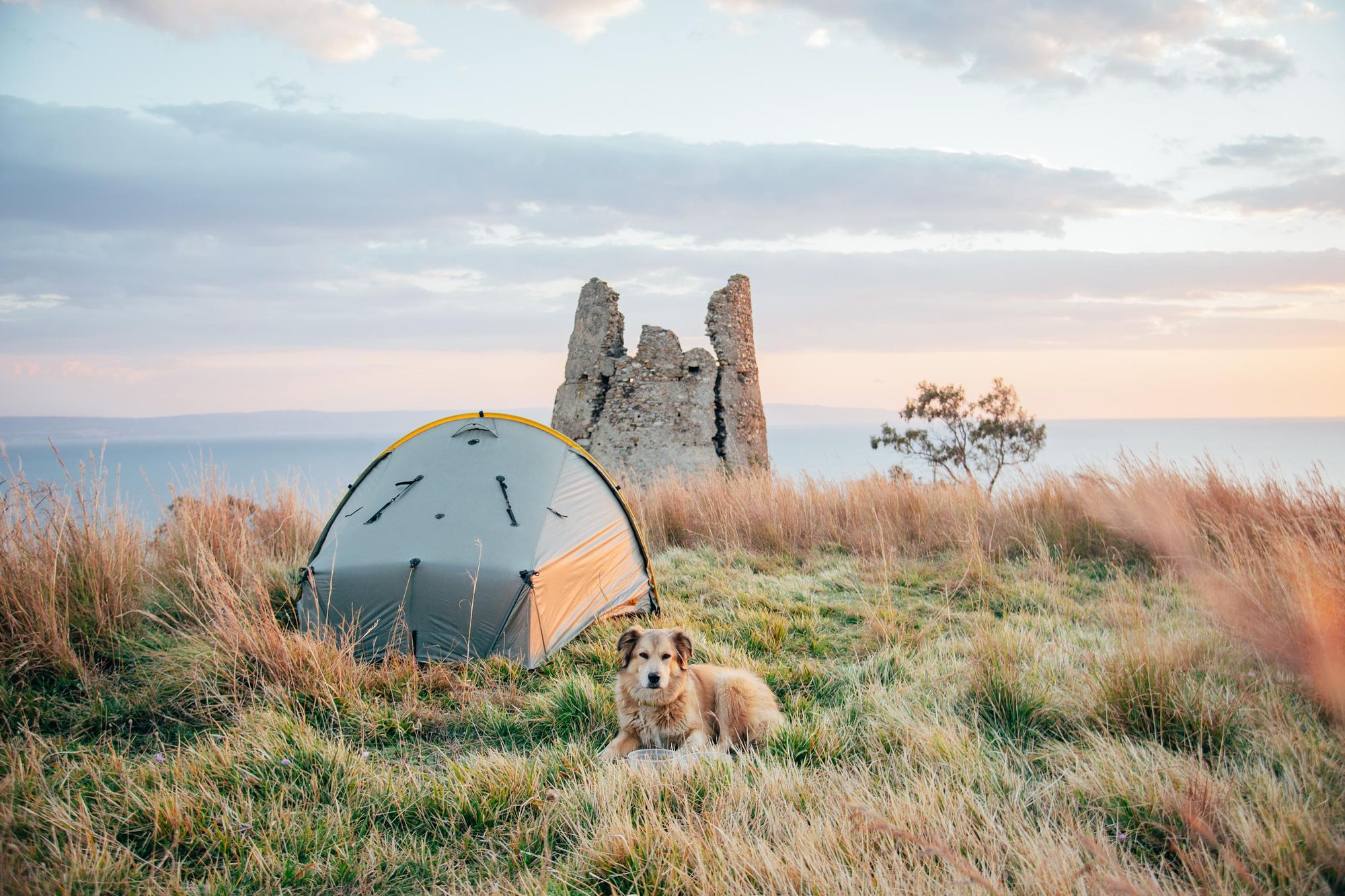
So what’s the antidote to these feelings? Instead of focusing on what you lack, it’s important to focus on what you do have, and cultivate a mentality of abundance.
“Abundance is being able to approach life with the perspective that there are lots of resources. A trust that we all have our path in life; it’s going to be different for everyone and that's okay,” Charlotte says.
Abundance is being able to approach life with the perspective that there are lots of resources. A trust that we all have our path in life
“There's a relaxed nature to the abundance mindset which we don't get in the scarcity mindset, which is very much linked to the amygdala and limbic system. But the abundance mindset maps onto our soothing system - to the frontal areas of our brains, such as the prefrontal cortex, which evolved later - a relaxed, connected, trusted way of being.”
Tom sees abundance and scarcity slightly differently - in fact, it’s the concept of ‘time running out’ that was his clarion call to adventure.
“I think that scarcity is about knowing how scarce your time is. That’s what drives me and what motivates me,” he says. “I had a friend who passed away when we were 17, Anne-Marie, and it was a very formative moment - it really drove home just how unsure and brief life is. It caused me to reflect on what I wanted to get out of life. I realised I wanted to travel, to be forced into adventure and to be pushed out of my comfort zone over and over again. That’s why I decided to walk around the world.
“On my walk I met so many people who were smarter than I was, much more driven, much kinder - and they're in the desert of Peru or they're in the mountains of Kyrgyzstan or they're living a quiet life in Uzbekistan or some village in Turkey. It doesn't matter what they do, they're just going to live this life. It’s very easy to get caught up in thinking that you have control, you are able to shape the world. You can to a small degree, but I think the abundance mindset is about being okay with walking one path.

“I also think everyone has an abundance of resilience within themselves, which most people don't draw on enough. Life's gonna be tough no matter what you do. You’re tiny, the world is big. You just get beat up, that’s the way it is, but you may as well be doing what you love. It’s that fearlessness in the abundance mindset which is important - that recklessness in your willingness to take those knocks in pursuit of what you want to do.”
How Adventure Travel Helps You Cultivate Abundance
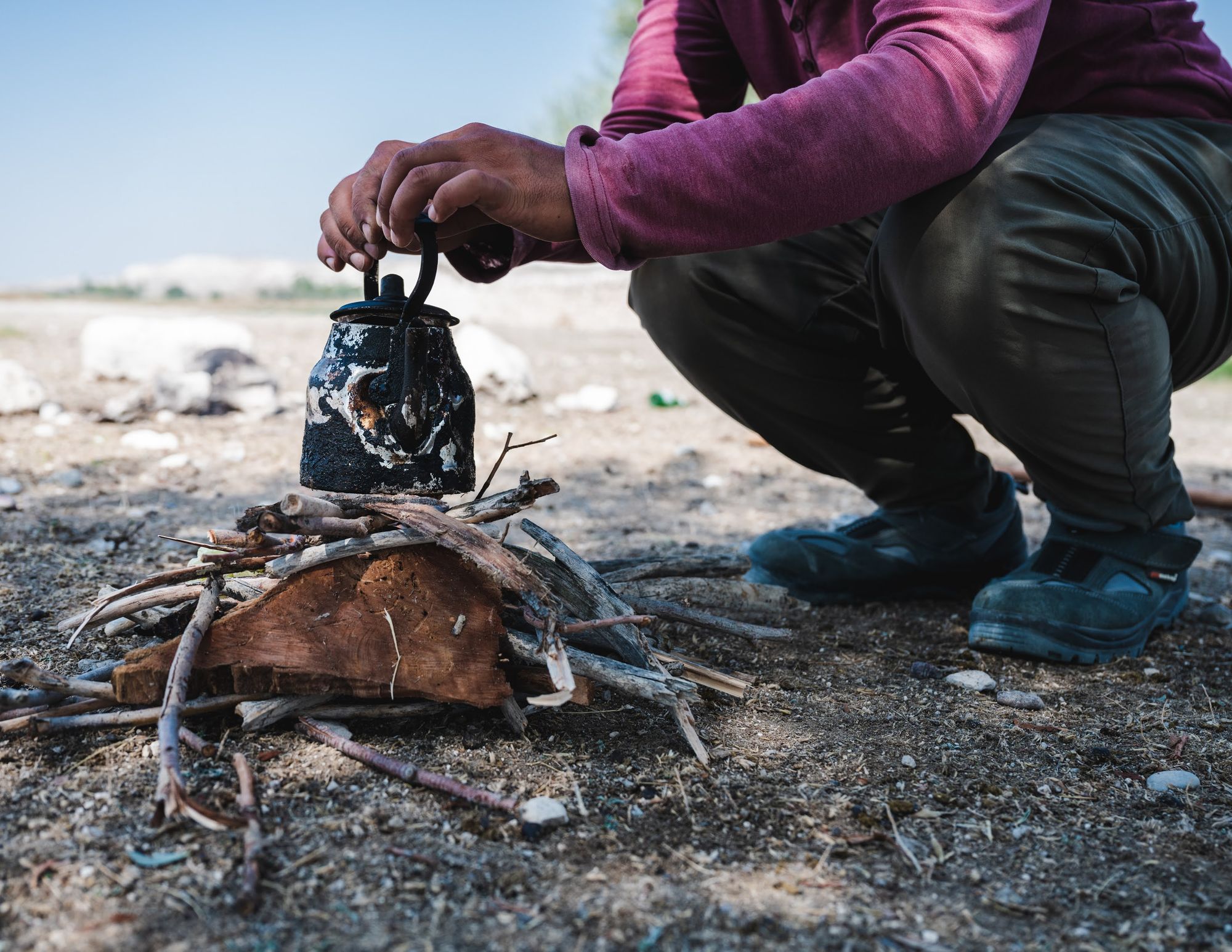
Both Charlotte and Tom believe that going on adventures and travelling help you cultivate an abundance mindset.
“The ability to experience different perspectives is one thing that helps us to recognise when we step into scarcity,” Charlotte says. “Then we can step back from it and think ‘this is not helpful for me. There's another way of thinking about this.’ That's an ongoing process, because these things map onto our bodies’ and brains’ processes and systems. The more that we experience different cultures the more we can see different perspectives.”
Tom experienced a myriad of different cultures on his seven year walk, and definitely feels as if it had an impact on him.
My walk taught me that you need very little. If you're able to live more closely to what you value, you’ll be happy
“When you first start travelling, things can seem very overwhelming. You see these different lives being led and all these different ways to do things,” he says. “But after a while on the road you parse these different comparisons - you realise what stays consistent and what changes, and you're much better able to divine what makes each place unique.
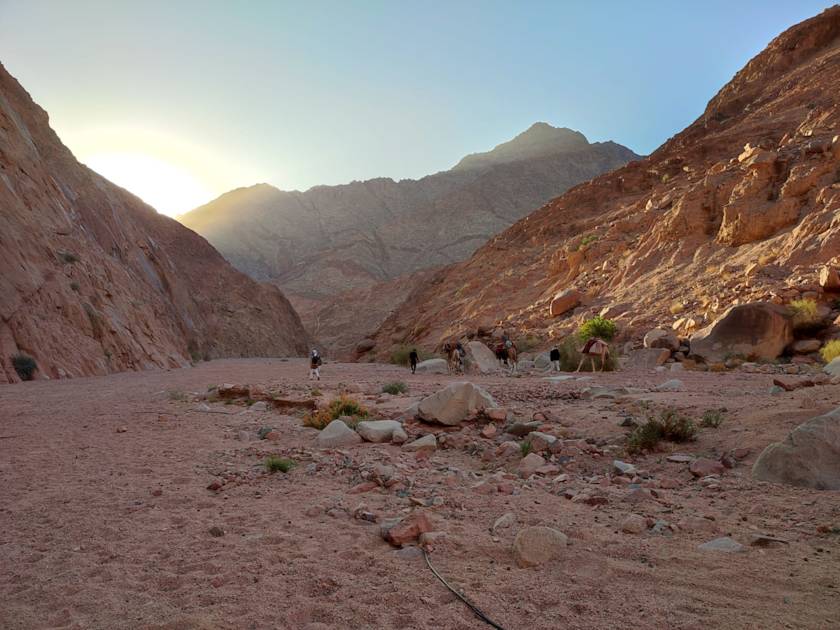
“There were a million people who were very generous to me, especially over the first couple of years. It really made me reflect on whether I would do the same if I was in their position, and I always found myself wanting - I think I would have been selfish and more suspicious. Overall, being shown a lot of generosity has made me much kinder and much more forgiving of other people.
“My walk taught me that you need very little. If you're able to live more closely to what you value, you’ll be happy. I don't think it's something that you work out in a week - you have to reflect on what you want out of life and get a really good sense of the things you can live without. You realise that you can actually live without most things, because you’re not looking for them to fulfil some deeper part of you.”
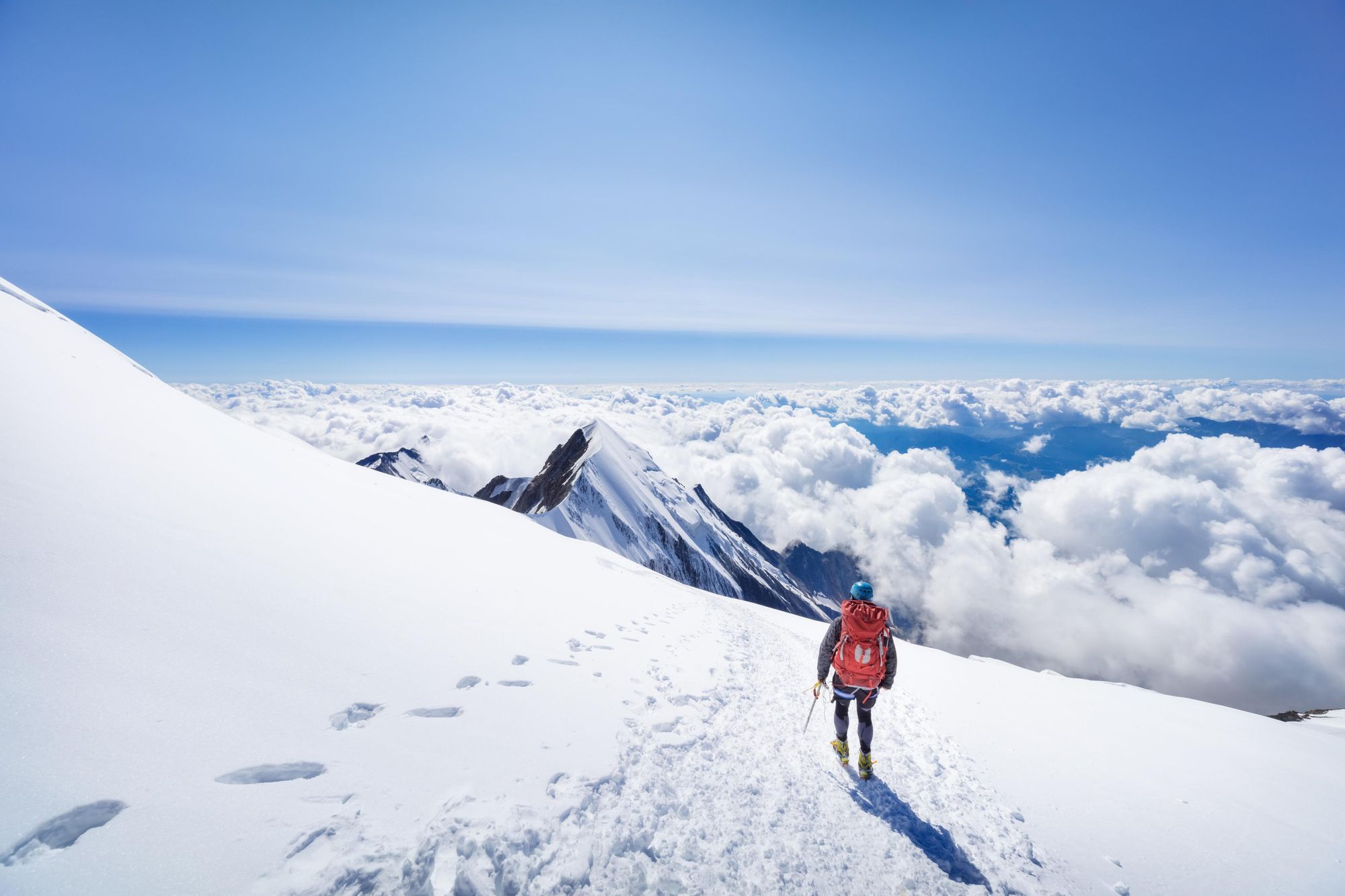
Charlotte believes that challenging yourself on an adventure is a vital step towards thinking with an abundance mindset.
“It's much easier to step into an abundance mindset when we're psychologically well, and adventure travel has the potential to provide the building blocks of psychological wellness,” she says. “These are positive emotions; engagement; relationships; meaning; and accomplishment. Adventure travel can allow us to experience a feeling of vastness, and joy, and the invigoration of challenging ourselves - very positive emotions. Something physical like climbing a mountain is very engaging.
“We might form relationships with other people who we’re travelling with, or improve our relationship with ourselves. Lots of people find meaning from adventure travel. And of course a sense of accomplishment is something that setting a challenge can provide. Adventure can provide the building blocks of psychological wellbeing, and help people to cultivate an abundance mindset even when they return from their trips.
Charlotte does offer a disclaimer however: adventure travel has to be something that you enjoy for it to be psychologically beneficial for you. What’s more, ‘adventure’ can be something that you define for yourself. One person’s version of living adventurously might be, like Tom, to walk around the world; for someone else it might be going out for a solo day hike.
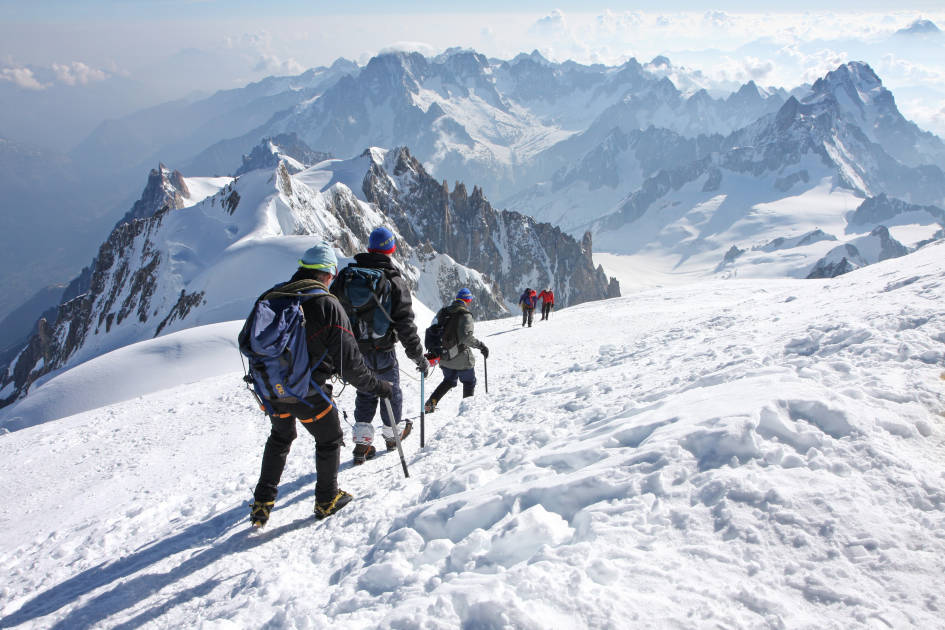
It’s also worth noting that it’s not just the action and the challenge of an adventure that helps cultivate abundance - it’s also those quiet moments of contentment.
“The best part of the trip in general was the camping,” Tom says. “When you find a really nice campsite. I’d sit there, in the fresh air, with my dog Savannah, surrounded by greenery. Just feeling free, and so content.”
So switch off your phone, lace up your hiking boots, and head outside. For, to quote Mary Oliver, “what is it you plan to do with your one wild and precious life?”
- Tom Turchich's memoir, The World Walk: Seven Years in Search of Meaning, is out in October 2024, and can be preordered here.
Inspired? We have so many epic adventures for you to try, from climbing Mont Blanc to kayaking across Greenland.


